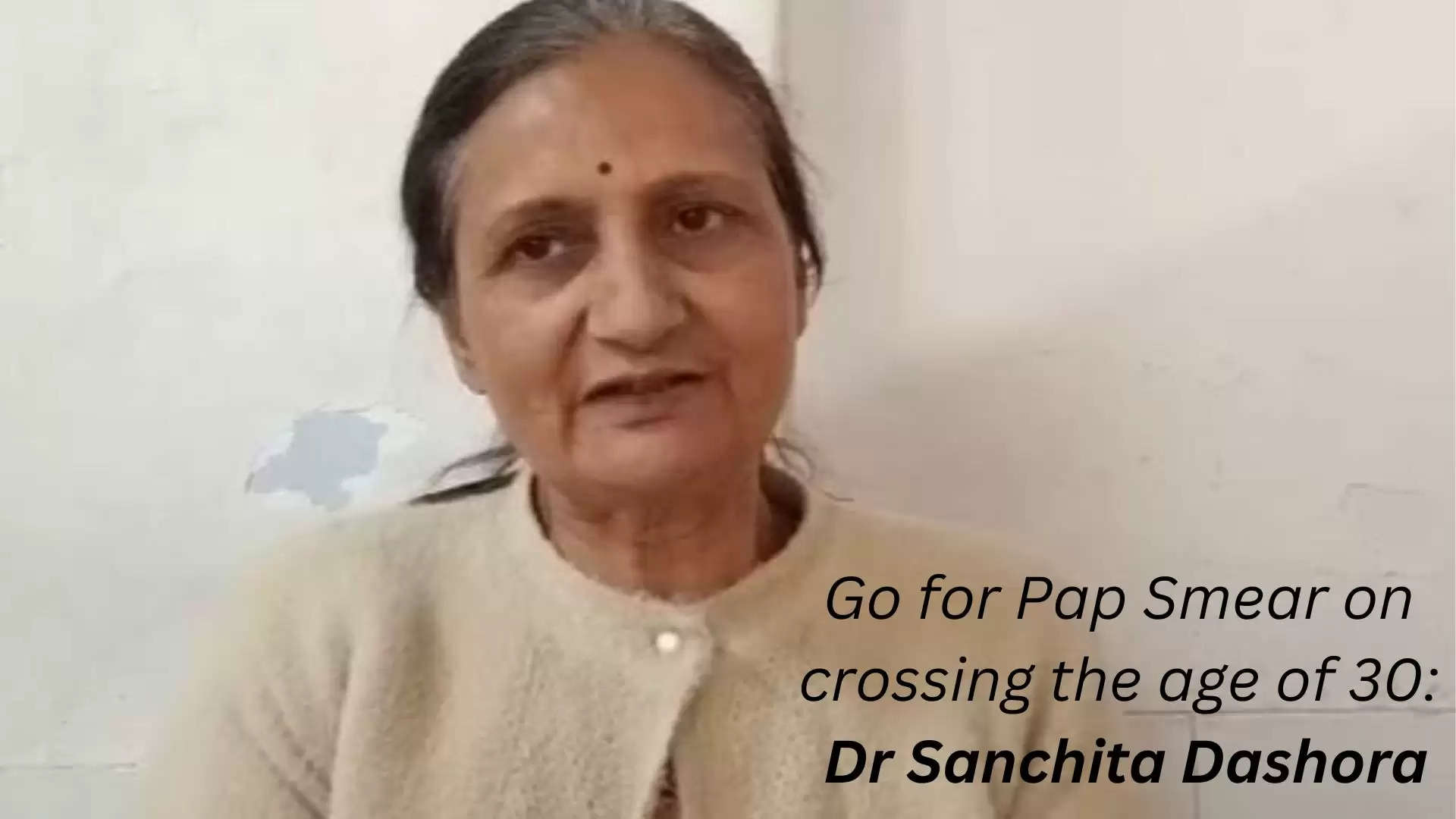‘HPV Vaccine: A Lifesaving Gift from Parents to their Daughter’
Prevent cervical cancer with the HPV vaccine taken between the ages of 10 and 40, says gynaecologist & obstetrician Dr Sanchita Dashora of Pacific Medical College and Hospital in a conversation with Mansoor Orawala and Razia Sanwari
Udaipur, January 6, 2025 – Cervical cancer is a type of cancer that affects women and develops in a woman's cervix, the entrance to the uterus from the vagina. This cancer type is mostly caused by certain strains of HPV (Human Paillomavirus) virus which can lead to changes in the cervix advancing to cancer.
According to the World Health Organisation (WHO), cervical cancer is the fourth most common cancer type in women and almost all cervical cancer cases (99%) are linked to infection with high-risk HPV.
The HPV virus is a sexually transmitted infection and spreads through sexual contact. Most people may contract HPV at some point in their lives but do not realise it because their body will naturally fight the infection. In some cases, the cells will change to malignant cells.
There are two main types of cervical cancer - squamous cell carcinomas and adenocarcinomas. About 80% to 90% of cervical cancers are the former type, while 10% to 20% are adenocarcinomas. One can also have a mix of both types.
UdaipurTimes (UT) caught up with Professor Gynaecologist & Obstetrician Dr Sanchita Dashora (SD) of Pacific Medical College and Hospital and spoke to her to get an insight into what cervical cancer is and how it can be prevented.
UT: What is cervical cancer and how does it impact one?
SD: In a layman’s language, cervical cancer affects the mouth of the uterus. Incidents of this type of cancer are quite prevalent among women. If detected early, this cancer can be treated but if it is discovered at a later stage, then it could get difficult to treat and can make the life of the patient miserable. Treatment in such a case could involve surgery, radiation and/or chemotherapy.
The only way to prevent this disease is to catch it at an early stage. If the disease is in an early stage then the patient may just require a small surgery or, in some cases, surgery may not be needed at all.
One way to prevent this type of cancer advancing is to have regular Pap Smear tests.
UT: What is a Pap Smear test?
SD: Pap Smear test is a minor, outdoor procedure during which secretions or discharge from the mouth of the uterus is taken and sent for clinical examination. If the test results come up doubtful, then further investigations are carried out.
UT: When should one go for a Pap Smear test?
SD: Ideally, it is recommended that once the woman crosses 30 years of age, she should go for the Pap Smear test. The first Pap Smear test should compulsorily be done on crossing 30 years of age. How to then proceed and when to do the next one, is what the doctor will advise depending on the test result.
UT: What can you tell us about the cervical cancer vaccine?
SD: There is a vaccine available that can prevent cervical cancer. In fact, the HPV vaccine has been there for quite some time now. The medical fraternity has now started to give a lot of thought and attention to cervical cancer and the WHO has set a goal to eradicate this type of cancer by 2030. An awareness campaign to this effect is being carried out all over the world.
UT: Who can be given the HPV vaccine?
SD: It is recommended that girls after the age of 10 should be given the HPV vaccine. It involves 2-3 dosage within 1- 6 months gap. Cervical cancer can completely be prevented if one takes this vaccine. However, we cannot give the HPV vaccine to women over the age of 40. It will not be of much benefit. The sooner the vaccine is taken the more beneficial it is.
UT: Does the Indian government have any plans about the vaccine?
SD: The Government of India is taking proactive steps to provide this vaccine as part of its immunisation schedule. It may happen that within one year this vaccine could be available free. But as of now there are 2-3 pharmaceutical companies that are making this vaccine of which there are two-three types. One prevents nine types of virus; another protects against four types and there is one which protects against three types.
I recommend that young girls should be given this vaccine. It is very affordable and will be the best gift parents can give to their daughter.
To join us on Facebook Click Here and Subscribe to UdaipurTimes Broadcast channels on GoogleNews | Telegram | Signal



